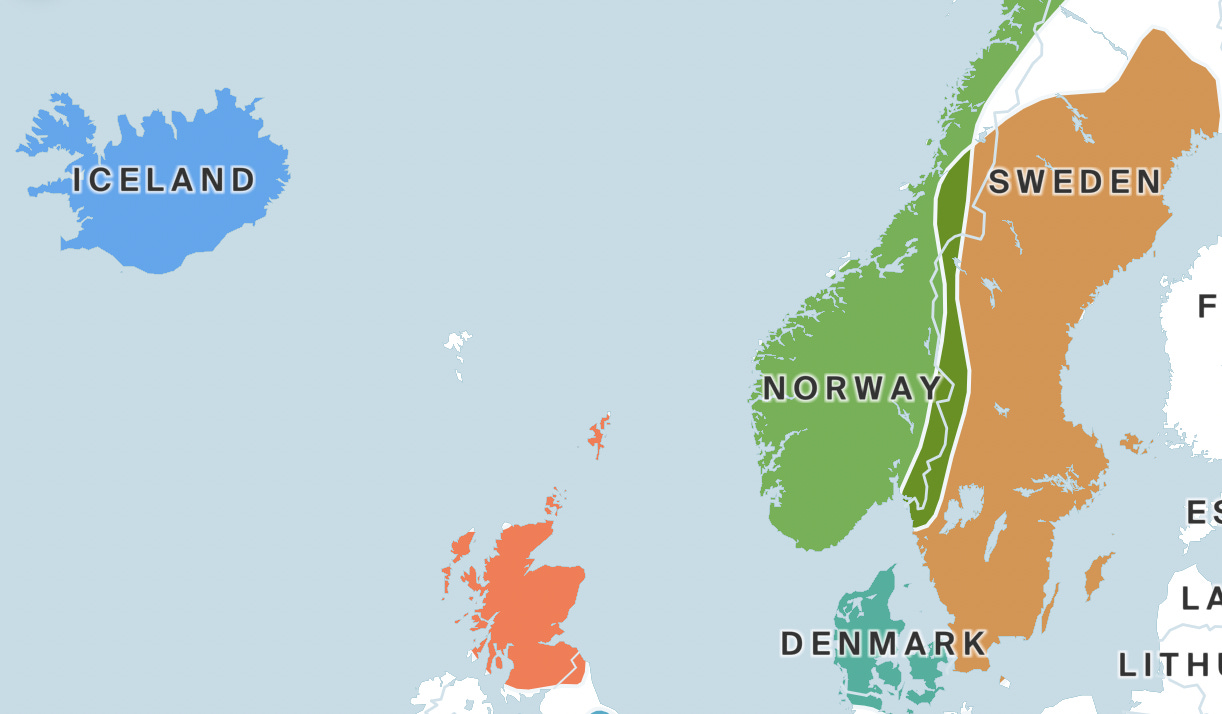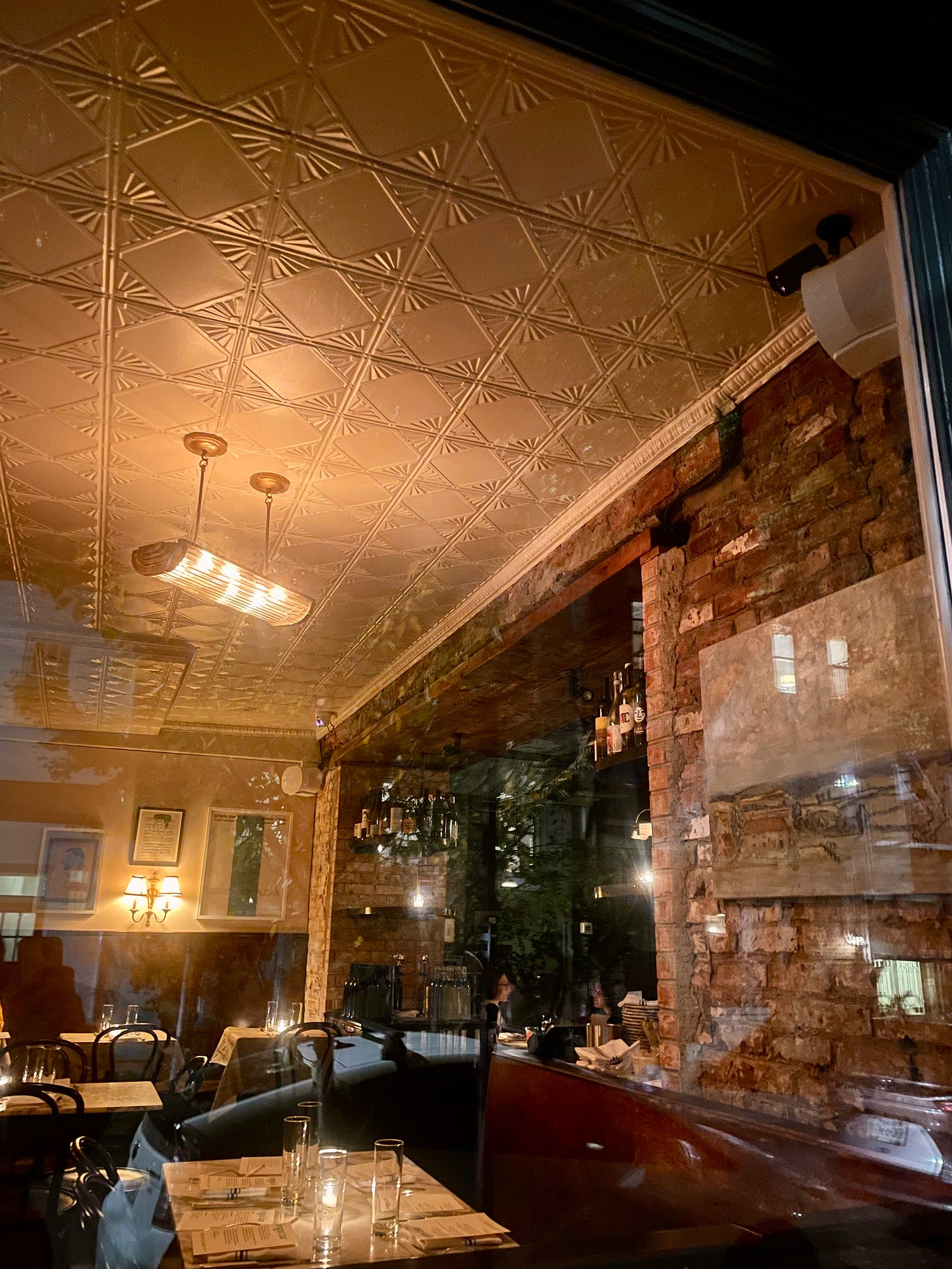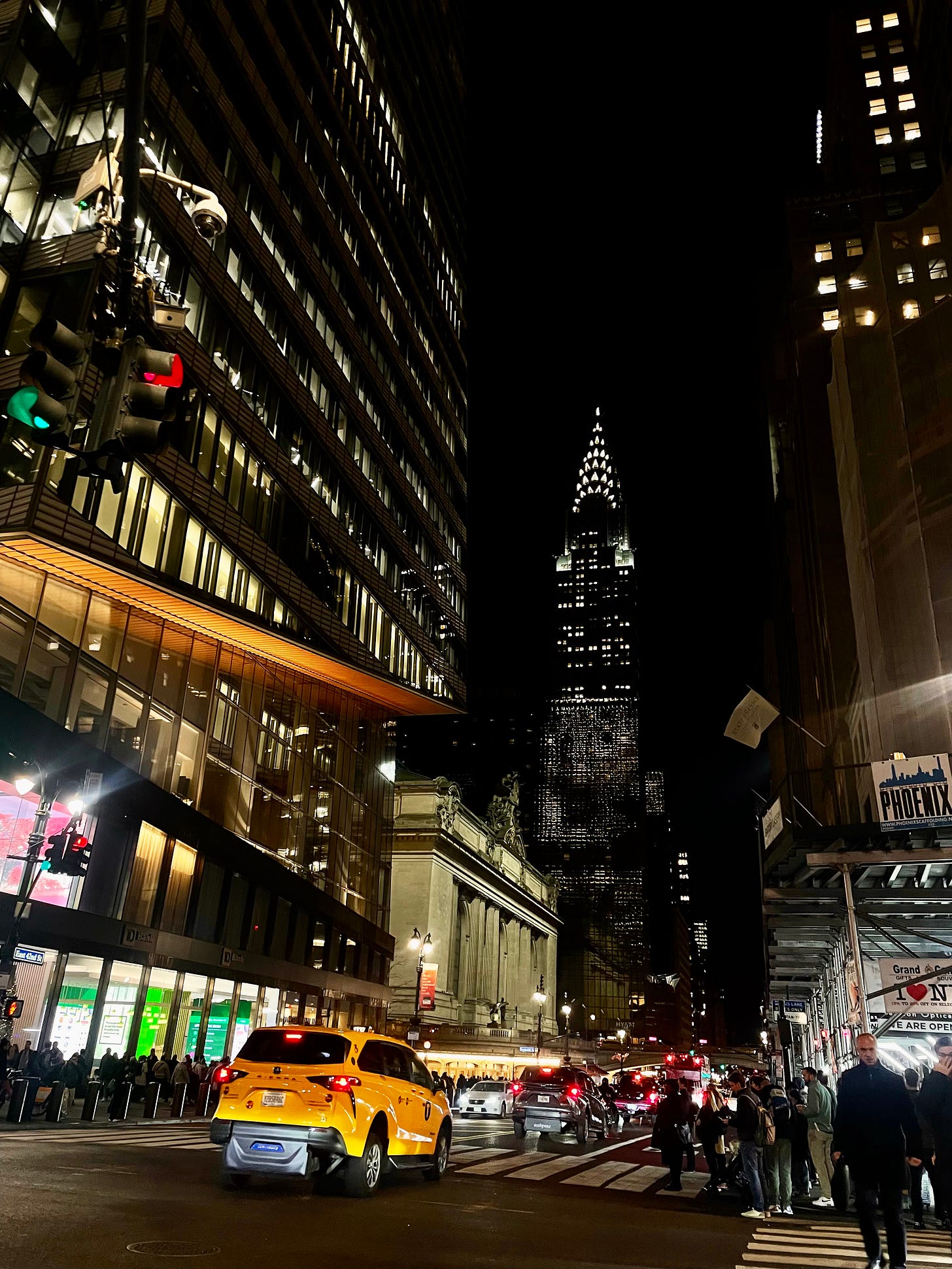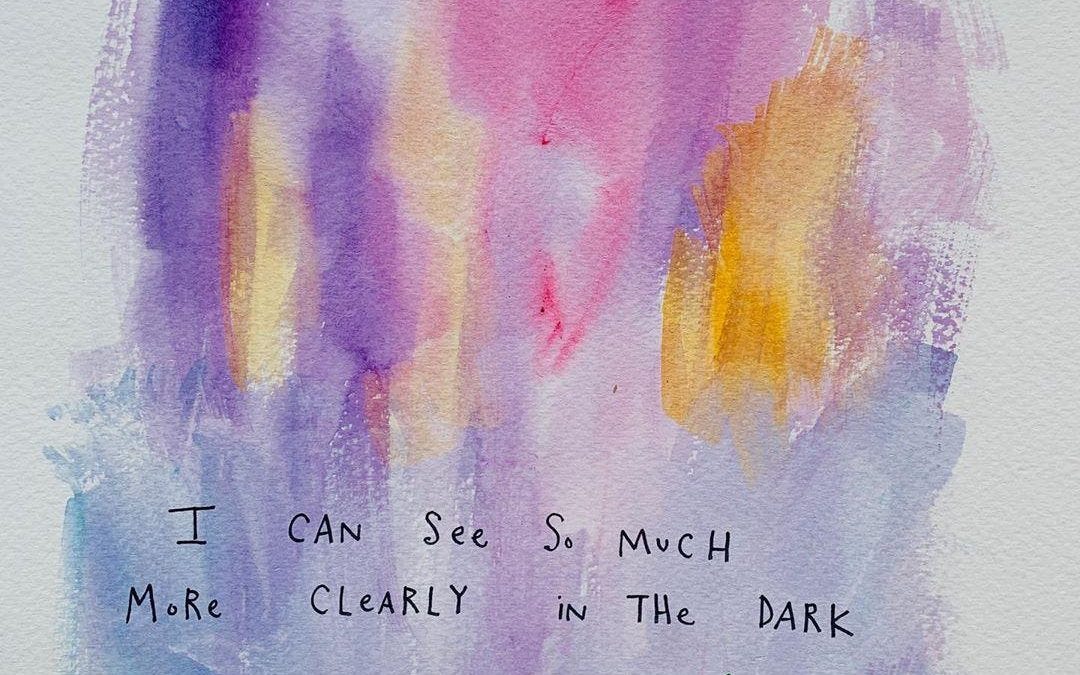Well hello friends!
I’m so sorry to rub it in everyone’s face, but…you know how it gets dark now at 4pm in the northern hemisphere?
I love it.
I’m sorry.
Ever since I was a tiny Mari, I’ve found this daylight savings time business to be both grounding and invigorating, like a return what has always been and should be.
I feel more creatively-stimulated, I feel more focused, and I feel more healthy as it’s easier for me to sleep and eat stews full of vegetables like an illustrated badger or groundhog who sips soup by a fireplace in his cottage at the base of a tree.
I just love it.
Maybe because I was a bat in a former life.
Maybe because I happen to see a lot of beauty and meaning in darkness.
(I’m not referring to figurative dark times; I literally mean the sun setting early.)
Maybe because all my DNA comes exclusively from the groups of people who have literally never seen a ray of sunlight in their lives:
Or maybe it’s because I am SO NOSY, and a city in the dark becomes a city full of little windows aglow, where I can peep in and see tops of paintings and photos on mantles and even occasionally somebody working or cooking or wooing their love interest.
It’s like my own personal gingerbread Christmas village where each window tells a story, and I can pretend I live in a picture book and not Brooklyn.
Whatever the reason, I am appreciating the energetic boost of a day that tidies itself up at the end, tucking in its corners and tying a midnight black bow around itself. While summer offers one more hour, one more location, one more drink, one more dance, just a little longer….this season imposes its idea of order: The day is done now. Time to rest.
Or, if you’re me, go outside. Look around. Enjoy the surprises of walking verrrry slowwwwwwly past candlelit restaurants and peering in. What are they ordering? How do they know each other? What’s that waiter whispering about?
So much to wonder about, so many ways to be surprised.
Recently, I visited Chicago, that old big teddy bear of a city where I became something resembling an adult over the course of seven years and nearly a decade of chronic uncertainty and confusion.
What do I think? What do I want? Who should I be? What should I do? What CAN I do? Am I actually super outdoorsy or not even a little bit at all? Do I even like IPAs or do I just drink them to feel sophisticated?
So much to wonder about, so many ways to be surprised.
Except, I didn’t think about my future in terms of surprises; I saw it in terms of, uh, abject terror.
Hindsight, of course, tells a different story.
While I was in Chicago, I met up with one of my best friends from my early 20s—now a police officer who suspects she might have chosen a very incorrect profession, and fears that the other categories of life are fixed, set in the wrong stone.
“You remind me of a time of life when everything was possible,” she told me.
I remember those days well—sautéeing mushrooms for most meals to save money, waking up at 4am for my first job and coming home at 10pm from my last. Drawing silly pictures at my kitchen table, watching DVDs of Mad Men, filling my iPod with songs that moved me to tears, and requesting more brochures from various masters degree programs to give myself the illusion of forward movement.
Everything was possible, but it didn’t feel like that; it felt uncertain. And scary. And dark, like I needed a path lined with lanterns but all I could see was the thick of the forest by the light of my iPhone, which hadn’t been invented yet.
Also while I was in Chicago, I went to a concert by James Vincent McMorrow, whose soulful sound reminds me of every mix CD I created in those days of emotional extremes.
He shared a bit of his artistic journey, and the low point where he realized that being online was not only making him miserable but also making him a bad musician.
“Music is my content,” he said. “There’s nothing else, there’s no other content!”
When he clearly discerned that, and stopped playing the Instagram game to gain popularity, his creative work flourished.
Rather than working on a proven schedule of one-album-release-every-two-years and consistent tours and posting on social media on Thursday afternoons because that’s when online activity peaks, he just…made stuff instead.
And now, he says, he’ll send a song to his label, and one week later send two more, and then have nothing for months.
That’s not the way it’s supposed to work, but that’s how his creativity works. And basically everything, so I’m rediscovering.
It’s inconsistent, it’s surprising, it’s sudden, and then not at all.
That’s how life used to be—when everything was possible—before I started depending on patterns and relying on external expertise and following other flimsy mirages of certainty and guarantees.
Letting ourselves be surprised by our own thoughts, inspirations, and ideas is a grand self-gift, and not one that is not often supported by the voices around us.
I’m sorry (again), but as I put the finishing touches on my newest book (which I think I can tell you now is called How to be a Living Thing and it comes out next August ;), I will probably be sharing from it more and more—because it’s all I’ve been thinking about for years and I’m excited to talk your ear off about everything I learned while writing it!
The very first chapter I wrote in 2020 was about captive orcas, who present a so-obvious-it’s-sad example of why a certain life is a sad life.
During the lockdown, I read a short article about whales in captivity that really stuck with me. I’ve always had a soft spot for orcas, having grown up in Seattle. In school we learned the local First Nations legends about the orcas, how the “blackfish” became both killers and protectors and now guard the sea.
Depictions of them jumping into the air grace postcards and picture books about the Pacific Northwest. Who wouldn’t be enchanted by the sight of one diving straight up from the water with the power and grace of a prima ballerina?
I suppose that was the whole idea when people started capturing orcas from the ocean and training them for shows where they performed their signature leaps for wide-eyed cheering crowds a few times a day.
Despite their reputation as killers, orcas have always gotten along well with humans and apparently were quick and easy to train for these shows. They would spin, shimmy, and soar on command, delighting families at marine parks all over the world.
Seemingly very low maintenance, the whales appeared happy to do their routines for the reward of fish, and then go back to swimming around their pools until the next show. The trainers at Sea World told audiences that orcas were much safer and happier in their pools than in the wild.
After all, there was a zero percent chance that whales would ever go hungry or face danger in their pools. They were fed fish all day and faced no challenges apart from an easy routine.
But the article told a different story of whales in captivity. In tanks, where some orcas aren’t even provided so much as a single toy ball to play with, whales are under-stimulated to the point of life-threatening stress.
They’ve been known to self-mutilate after years of life in a swimming pool, banging their heads on the walls or even attempting to jump out in an apparent effort to die. It’s as though their captive existence feels so egregiously wrong that it’s painful, and at times seems not even worth living.
Why would such an easy life cause them to suffer? In the ocean, orcas are met with all kinds of toils and troubles: the hunt for food, problems within the pod, parasites, and predators. You’d think the swimming pool would be like a lifelong spa day in comparison!
Turns out, it's the same reason that pandemic Zoom Happy Hours got really old, really fast. Whales evolved over millennia for the ocean—not a swimming pool. Both situations involve water, sure, but that’s sort of like comparing sitting on an airplane to hiking across a mountain range because they’re both up high.
Orcas’ intuition, intelligence, and bodies are intricately suited to a complex, ever-changing environment. So, when they live in a display tank with highly artificial circumstances, they don’t feel safe and stress-free; they feel constant anxiety.
Proponents of marine parks will point to the leviathans circling around a pool and argue, Look! They’re stress-free! Imagine if they were out there fighting off predators and looking for fish—they’re living a life of luxury with daily feedings straight into their mouths!
Getting a sufficient supply of food with nothing to do but perform repetitive tricks might not be demanding, but the chronic boredom of an “easy life” with little stimulation and no challenges is absolutely stressful.
I can see why marine park enthusiasts got there, although as a member of the Free Willy generation, it’s obvious to me that orcas will develop all sorts of physical and mental problems from living in a tank. But I hadn’t factored in the stressfulness, even torture, of so-called ease.
I wonder how many ways we keep ourselves in a proverbial swimming pool, left to swim in circles questioning why it’s not making us happy.
A captive orca has a life of certainty—something that many of us probably dream about. When I lived in Chicago, all I wanted in life was a husband and a reliable 9-5 job. Instead, I lived in constant flux, spinning a wheel of misfortune and landing on any job or situationship that would have me.
But whenever I tried to fit my uncertainties into a tidy wrapped box, or trace my whims along a straight line tilting upwards, I’d lose myself. That’s not how I was meant to live; that’s not how humans—or whales—are meant to live.
Back to daylight savings time.
Darkness is a little scary because it’s hard to see in the dark.
But it’s much easier to look in the dark than it is in the daytime.
When the sun generously splashes over every thing and being it can, the world looks full and easy to understand—this is so nice!
But when the darkness shrouds most things from our vision so we have to look closer at them, the world can look even more interesting, and sometimes astonishing.
Seeing is overrated. We need a lot more look-ers and seekers in this world.
Since the nighttime began earlier, I’ve looked at houses and cafes and gardens I’d never noticed in the daylight; I’ve been looking harder and I’ve become more aware of the tiny sources of radiance that beckon me to stop and stare.
I’m less reactive and more responsive; instead of coming to a quick conclusion based on what seems so obvious in the light, I’ve been imagining stories and going on creative explorations about what’s in front of me—shrouded, mysterious, open to interpretation, and more multidimensional than I thought.
If we want to experience life as one of those breathtaking black whales who take flight above the ocean’s surface only to splash back down into a sea full of tests and treasures, we’ve got to give up on this compulsion for sureness. We hold our own selves captive when we exchange the known for unknown.
As always, I’m telling all this to myself.
I just submitted another book proposal at a time when I should really be promoting the book I just wrote.
But life doesn’t adhere to promotion cycles; life adheres to the soul.
And my soul is cuckoo-bananas.
While I was writing this, I’m reminded of a prayer that I recited all the time during my uncertain daylight savings time cuckoo bananas youthful Chicago days.
By Thomas Merton:
My Lord God,
I have no idea where I am going.
I do not see the road ahead of me.
I cannot know for certain where it will end.
nor do I really know myself,
and the fact that I think I am following your will
does not mean that I am actually doing so.
But I believe that the desire to please you
does in fact please you.
And I hope I have that desire in all that I am doing.
I hope that I will never do anything apart from that desire.
And I know that if I do this you will lead me by the right road,
though I may know nothing about it.
Therefore will I trust you always though
I may seem to be lost and in the shadow of death.
I will not fear, for you are ever with me,
and you will never leave me to face my perils alone.
I happen to be on good speaking terms with God (though I’ve filed a few complaints this past week), and She says that you can substitute Universe/Source/Fate/Santa for “God” if that’s an intense or non-resonant word for you.
The same idea applies. Wanting to be on the path is as good as being on the path….and what a privilege to want something—unlike those sweet magnificent whales whose life of predictability and certitude is causing them to suffer.
If you struggle with the overabundance of cold and night, I am so, so sorry. I know it’s disheartening to consider the next few months of this winter crap. Even I tire of it easily after the initial honeymoon phase.
But, I also invite you to look deeper into the darkness for treasures that aren’t so visible in the light. Could uncertainty look like possibility? Could a dark night of the soul look like needed introspection? Could 4pm seem more cozy than depressing?
Maybe not.
But maybe.
And perhaps “maybe” is a more powerful word than we thought.






![Mari Andrew illustration: "what it looks like now [squiqqly line]... what it will look like in hindsight [straight paved road]" Mari Andrew illustration: "what it looks like now [squiqqly line]... what it will look like in hindsight [straight paved road]"](https://substackcdn.com/image/fetch/$s_!VH0O!,w_1456,c_limit,f_auto,q_auto:good,fl_progressive:steep/https%3A%2F%2Fsubstack-post-media.s3.amazonaws.com%2Fpublic%2Fimages%2F685cbcec-1042-4249-912f-5ef920c6dbdd_700x510.jpeg)
Oh today's post had so many things for me!! Like you, I LOVE the early dark (or "The Big Dark" as we PNWers call lit) - I like the cozy and LOVE peeking in the windows as a nosy parker! And I love Orcas (because, PNW) AND you even included my favorite prayer in the world, which - as a former Catholic but currently non-religious person, is the one I come back to again and again and have pinned to my bulletin board. Today was all about connecting with Mari - thank you!! <3
As always, just what I needed on this chilly dark night :) As an easily delighted summertime souled human slightly lost in the dark at 4pm, this was such a kind helping hand across the internet - thank you, as always. (And I love that you love Thomas Merton too! Just got back from a CAC retreat)